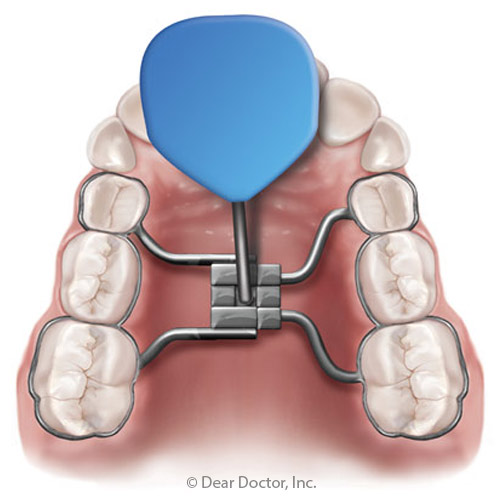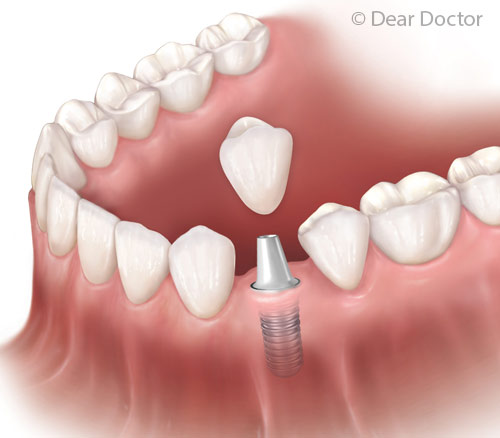.jpg)
The Dental Helpline takes more than 10,000 calls every year from those who have questions or concerns about their mouth and oral health. The free-to-call helpline, run by the British Dental Health Foundation, has seen a steady upsurge in calls over the last two years and answers questions on a wealth of oral health related issues.
In a new three-part series, the charity has taken a look at some of the most frequently asked questions to the Dental Helpline, so that we can learn what it takes to keep our mouth healthy.
In the first part of the series the British Dental Health Foundation address some of the most common questions they get asked about what you can do to look after your own oral health.
There are many aspects to looking after our oral health and it can often be confusing what advice we should listen to and what to ignore. Looking after our mouth doesn't have to be difficult, expensive or time-consuming, in fact it can be very easy.
So to make things a little clearer here is some advice to help you keep your smile healthy:
1) How often should I visit the dentist?
How often you need to visit the dentist depends on your own oral health. You may need to visit at different intervals depending on aspects such as if you have any existing oral health problems, your age and other health issues.
As a rule of thumb you should visit the dentist as often as they recommend so discuss this with your your dentist.
2) When is the best time to brush my teeth?
Did you know that there are times when you shouldn't brush your teeth? For example, you should not brush your tooth within an hour of eating or drinking anything acidic.
You should brush your teeth before you go to bed and at least one other time each day with a fluoride toothpaste.
3) What toothbrush should I be using?
Choosing the best toothbrush for you can be a potential minefield, everybody will have their own requirements. Adults should look to use a small to medium-sized brush head with soft to rounded nylon bristles and there are bushes which are specifically designed for children and the elderly.
Electric toothbrushes, those with the oscillating and rotating heads, can also be very effective and are helpful for people with mobility problems.
Your dentist will know exactly what you need and be able to help you make the right decision.
4) Which toothpaste is best for me?
There are many types of toothpaste on the market, choosing the best one for you can sometimes be confusing.
The most important thing is that your toothpaste contains the correct amount of fluoride, 1350 parts per million for children over three and adults,1000 parts per million under three. But you may have other specific needs due to tooth sensitivity, gum health or your age. Your dentist will be able to advise what is best for you based on your individual requirements.
5) How does my diet affect my oral health?
What you eat and drink can have a huge impact upon your oral health.
Sugary and acidic food can cause damage including tooth decay and dental erosion if you don't look after your oral health properly. Try to keep sugary foods or drinks just to mealtimes, limiting the amount of time your mouth is at risk. Each time you have sugar it takes your teeth an hour to recover from the acid attack caused.
A diet that is rich in vitamins, minerals and fresh fruit and vegetables can help to prevent gum disease so make sure you keep an eye on what you are eating.
6) How often should I clean between my teeth?
Ideally you should clean between your teeth at least once a day, only brushing your teeth cleans just two thirds of the tooth surface so you need to do a little extra to make sure you are reaching all of the tooth. Cleaning in between your teeth removes plaque and bits of food from areas a toothbrush simply can't reach.
You can clean between your teeth with an ‘interdental' brush or dental floss. You can also use dental tape which is thicker than floss and many people find easier to use. Your dental team can show you proper interdental cleaning techniques and products to ensure you're doing it effectively.
7) Should I use mouthwash?
Mouthwash offers many benefits to your oral health if used properly; some contain anti-bacterial ingredients which help reduce plaque and prevent gum disease. Some mouthwashes contain fluoride which is important in the helping to prevent tooth decay.
Do not use mouthwash too close to brushing your teeth as it can wash away the fluoride from brushing.
If you find that you have to keep using mouthwash to hide bad breath you should see your dentist. Persistent bad breath can be a sign of unhealthy teeth and gums or of poor general health.
8) How bad is smoking for my oral health?
Most people are very aware that smoking is bad for their health. It can cause huge medical problems and, in some cases, fatal diseases.
However, many people don't realise the full extent to which smoking damages their mouth, gums and teeth.
Smoking can lead to tooth staining, gum disease, tooth loss, and in more severe cases mouth cancer. Smokers lose more teeth than non smokers.
If you are a smoker it is likely that you will have to visit your dentist and hygienists more often to keep a close check on the health of your mouth.
9) Where can I find information about how to look after my oral health?
Your oral health does not stop the moment you step out of the dentist, be sure you understand what you can do every day to make sure you keep your oral health in tip top condition. Your dental team can offer guidance and support from many other services and can refer you if you need extra help.
You shouldn't be afraid to ever ask any question relating to your oral health, if you do need any further advice then you should contact the British Dental Health Foundation's Dental Helpline on 01788 539 780, or online at www.dentalhealth.org/dental-helpline, who will be able to offer free impartial advice.
Source: British Dental Health Foundation




